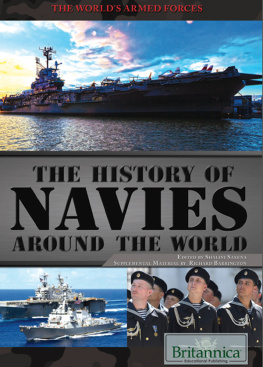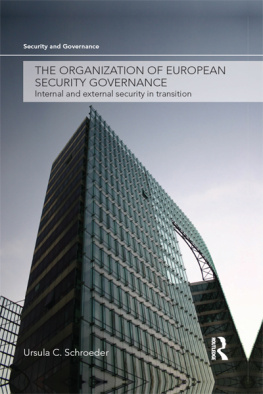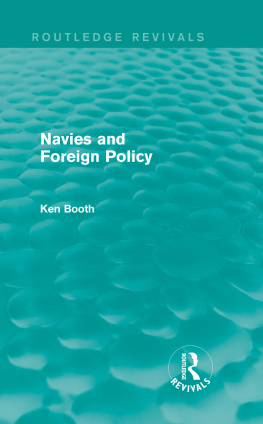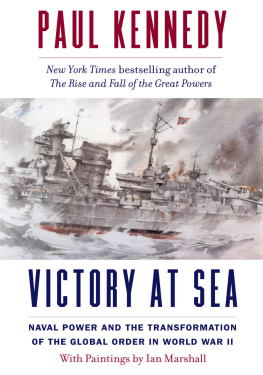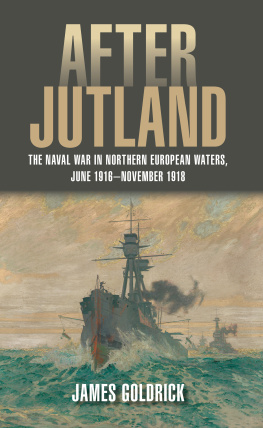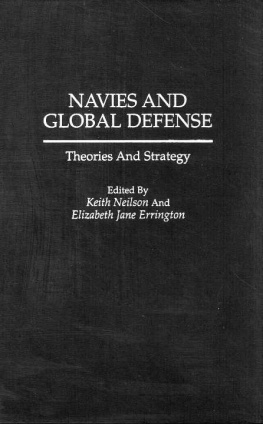Contents
Guide
Print Page Numbers

Europe, Small Navies and Maritime
Security
This book seeks to identify and address gaps in our understanding of maritime security and the role of small navies in Europe.
The majority of Europes navies are small, yet they are often called upon to address a complex array of traditional and non-traditional threats. This book examines the role of small navies within the European security architecture, by discussing areas of commonality and difference between navies, and arguing that it is not possible to fully understand either maritime strategy or European security without taking into account the actions of small navies. It contains a number of case studies that provide an opportunity to explore how different European states view the current security environment and how naval policy has undergone significant changes within the lifetime of the existing naval assets. In addition, the book examines how maritime security and naval development in Europe might evolve, given that economic forecasts will likely limit the potential procurement of larger naval assets in the future, which means that European states will increasingly have to do more with less in the maritime domain.
This book will be of much interest to students of maritime strategy, naval power, strategic studies, European politics and international relations in general.
Robert McCabe is Assistant Professor and Course Director for the MA in Maritime Security at the Centre for Trust, Peace and Social Relations at Coventry University, UK.
Deborah Sanders is a Reader in Defence and Security Studies at the Defence Studies Department, Kings College London, UK.
Ian Speller is Associate Professor and Director of the Centre for Military History and Strategic Studies at the National University of Ireland, Maynooth.
Corbett Centre for Maritime Policy Studies Series
The Corbett Centre for Maritime Policy Studies Series is the publishing platform of the Corbett Centre. Drawing on the expertise and wider networks of the Defence Studies Department of Kings College London, and based at the Joint Services Command and Staff College in the UK Defence Academy, the Corbett Centre is already a leading centre for academic expertise and education in maritime and naval studies. It enjoys close links with several other institutions, both academic and governmental, that have an interest in maritime matters, including the Developments, Concepts and Doctrine Centre (DCDC), the Naval Staff of the Ministry of Defence and the Naval Historical Branch. The centre and its publishing output aims to promote the understanding and analysis of maritime history and policy and to provide a forum for the interaction of academics, policy-makers and practitioners. Books published under the aegis of the Corbett Centre series reflect these aims and provide an opportunity to stimulate research and debate into a broad range of maritime related themes. The core subject matter for the series is maritime strategy and policy, conceived broadly to include theory, history and practice, military and civil, historical and contemporary, British and international aspects. As a result, this series offers a unique opportunity to examine key issues such as maritime security, the future of naval power and the commercial uses of the sea, from an exceptionally broad chronological, geographical and thematic range. Truly interdisciplinary in its approach, the series welcomes books from across the humanities, social sciences and professional worlds, providing an unrivalled opportunity for authors and readers to enhance the national and international visibility of maritime affairs, and provide a forum for policy debate and analysis.
Series Editors: Greg Kennedy, Tim Benbow and Jon Robb-Webb, Defence Studies Department, Joint Services Command and Staff College, UK
Early Naval Air Power
British and German Approaches
Dennis Haslop
Naval Diplomacy in the 21st Century
A Model for the Post-Cold War Global Order
Kevin Rowlands
Europe, Small Navies and Maritime Security
Balancing Traditional Roles and Emergent Threats in the 21st Century
Edited by Robert McCabe, Deborah Sanders and Ian Speller
For more information about this series, please visit: www.routledge.com/Corbett-Centre-for-Maritime-Policy-Studies-Series/book-series/CCMPSS
Europe, Small Navies and
Maritime Security
Balancing Traditional Roles and Emergent
Threats in the 21st Century
Edited by Robert McCabe,
Deborah Sanders and Ian Speller

First published 2020
by Routledge
2 Park Square, Milton Park, Abingdon, Oxon OX14 4RN
and by Routledge
52 Vanderbilt Avenue, New York, NY 10017
Routledge is an imprint of the Taylor & Francis Group, an informa business
2020 selection and editorial matter, Robert McCabe, Deborah Sanders & Ian Speller; individual chapters, the contributors
The right of Robert McCabe, Deborah Sanders & Ian Speller to be identified as the authors of the editorial matter, and of the authors for their individual chapters, has been asserted in accordance with sections 77 and 78 of the Copyright, Designs and Patents Act 1988.
All rights reserved. No part of this book may be reprinted or reproduced or utilised in any form or by any electronic, mechanical, or other means, now known or hereafter invented, including photocopying and recording, or in any information storage or retrieval system, without permission in writing from the publishers.
Trademark notice: Product or corporate names may be trademarks or registered trademarks, and are used only for identification and explanation without intent to infringe.
British Library Cataloguing-in-Publication Data
A catalogue record for this book is available from the British Library
Library of Congress Cataloging-in-Publication Data
A catalog record has been requested for this book
ISBN: 978-0-367-25222-9 (hbk)
ISBN: 978-0-429-28663-6 (ebk)
Typeset in Times New Roman
by Wearset Ltd, Boldon, Tyne and Wear
Contents
PART I
Theorising small navies and maritime security
PART II
Small navies within the European context
Figures
Tables
William Bill Combes, is a retired Captain in the US Navy and a lecturer at the Baltic Defence College in Tartu, Estonia. Before moving to Estonia, Bill completed a 27-year career in the US Navy as submariner and strategist. In addition to commanding a ballistic missile submarine, serving as Chief of Staff of a carrier strike group deployed to the Persian Gulf and his last position as the branch head for US Navy strategy in the Pentagon, he was the US Navys Fellow to Oxford University and the Changing Character of War Programme. The Baltic Defence College provided support for his research through their fellowship programme, offered twice a year.
Brendan Flynn is a Lecturer with the School of Political Science & Sociology at the National University of Ireland, Galway. He has studied at the University of Essex for his Masters and PhD degrees, his doctoral thesis having the title: Subsidiarity and the Evolution of EU environmental policy, with Prof. Albert Weale as his supervisor. He has taught a wide variety of undergraduate courses on topics in the areas of Irish politics, introduction to politics, and European politics. He has also offered specialist third option courses in environmental policy and EU policy. His primary research interests include comparative environmental policy, with a special focus on EU and Irish developments. He also retains an interest in wider EU policy and European politics developments. He is the author of



